Pam Withers's Blog, page 10
December 16, 2015
Which TYPE of intelligent is your child? (Hint: there are 8 types)
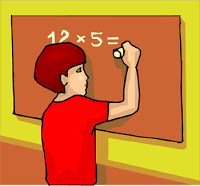
Pioneering psychotherapist Alfred Adler observed that children who misbehave are discouraged children. Adler also taught that individuals have unique interpretations of life that influence both how they perceive life and how they learn.
Not himself an Adlerian, but a believer in individual-centered education, developmental psychologist and professor Howard Gardner views people as having one or more types of intelligences—only some of which are valued in the traditional school system.
Here are the eight intelligences Gardner describes:
Verbal-linguistic: a mastery of language. Children with this tend to read and write well, and many will become teachers, journalists, writers, lawyers, translators, storytellers, and comedians. Most schools value and test for this type of intelligence.
Musical-rhythmic: a mastery of pitch, tone, timbre, and rhythm. Our culture currently minimizes the importance of this intelligence, but those with it thrive on composing and performing.
Mathematical-logical: innate skill for detecting patterns, reasoning deductively, and thinking logically. Because they can follow the logic of textbooks, this set of students thrives in thetraditional school system, and may go on to become mathematicians, physicists, philosophers, or scientists.
Visual-spatial: an uncanny ability to perceive the visual world accurately; these children love color and imagine the world differently from their schoolmates. That often gets them ostracized for nonconformity, and they typically struggle with standardized tests. But many will become painters, sculptors, designers, navigators, hunters, scientists, and architects.
Bodily-kinesthetic: special skill at manipulating objects and tools. They often can’t sit still for long; they love keeping their hands busy. They frequently fail where the above skills aren’t involved, but these are our society’s athletes, dancers, inventors, mimes, carpenters, plumbers, and sculptors.
Interpersonal: talent for understanding, perceiving, and discriminating between peoples’ moods, feelings, motives, and intelligences. Is it any surprise that this set of individuals provides our politicians, religious leaders, teachers, and therapists?
Intrapersonal: a remarkable ability to understand one’s self. These folks thrive on self-directed projects and self-paced learning. They’re highly contemplative, self-aware, imaginative, original, patient, disciplined, and motivated, with lots of self-respect.
Naturalist: fascinated by plants, animals, and other features of the earth. Sadly, these children often fail if not motivated or rewarded by such interests, but the persistent will become veterinarians, forest rangers, ecologists, farmers, animal trainers, and scientists.
Remember, no one is restricted to only one of the eight intelligences. And the point is, if schools and standardized tests focus on only two of the above, it leaves massive potential for others tofeel like failures despite their innate talents. Parents can correct for this simply by expanding their own viewpoint accordingly, and positively reinforcing those talents less valued at school. A very readable book on this topic is Pathways of Learning by David Lazear. Some parents go so far as to home-school or move their children to one of the many alternative schools that incorporate multiple intelligences into their philosophies.
Both research and anecdotal evidence indicate a tremendous success rate in charter and home schools that use an encouraging approach. Students labelled as failures in traditional schools thrive in environments where they are allowed to learn in their own way, often pursuing the arts in a non-competitive classroom. One educator even calls the traditional school a “worksheet wasteland,” an indictment on the high rate of students who suffer from a hatred of school and fail.
Excerpted from Jump-Starting Boys: Help Your Reluctant Learner Find Success in School and Life, by Pam Withers and Cynthia Gill (Viva Editions). All references (footnotes) contained in the book.
http://www.amazon.com/Jump-Starting-Boys-Reluctant-Learner-Success-ebook/dp/B00BAHA0Y8/ref=sr_1_1?s=books&ie=UTF8&qid=1421455869&sr=1-1&keywords=jump+starting+boys
Published on December 16, 2015 14:50
December 10, 2015
The helicopter parent phenomenon
[image error]
Why is the number of micromanaging, obsessively-hovering parents growing, and what's that doing to our kids?
According to author and economic journalist Megan McArdle, the increase is due partly to the "professionalization" of a generation: Compared with our parents' time, there are fewer small business owners and more salaried positions in ever-larger firms.
So, instead of being able to pass along a small family business to our children, we feel we need to push them to get the credentials that will make them successful in a super competitive world. And "many teenagers...do not quite have the emotional maturity and long-term planning skills for the high-stakes economic competitions they find themselves engaged in. So their parents intervene..."
Worryingly, "the more inequality widens, the more obesssively they will manage their kids through school..." which in the end will limit economic mobility even more, given that parents who aren't professionals will struggle more with this feat, McArdle argues.
So, what is this doing to our kids? McArdle has written a book about that, but summarizes it in a recent editorial (National Post Dec. 3, 2015, p. A12, from which the quotes above come) as "a generation growing up anxious, risk-averse and generally unable to cope with the slings and arrows of outrageous fortune."
Definitely cause for concern.
Are you a helicopter parent? Well, here's a self-quiz offered by one source:
http://www.csmonitor.com/The-Culture/Family/2012/0419/Are-you-a-Helicopter-Parent-Take-our-quiz/When-your-baby-drops-a-cookie-on-the-floor-you
And here's a link to McArdle's website (http://meganmcardle.com/) and book: http://www.amazon.com/Up-Side-Down-Failing-Success/dp/0143126369/ref=sr_1_1?s=books&ie=UTF8&qid=1449767367&sr=1-1&keywords=up+side+of+down
Why is the number of micromanaging, obsessively-hovering parents growing, and what's that doing to our kids?
According to author and economic journalist Megan McArdle, the increase is due partly to the "professionalization" of a generation: Compared with our parents' time, there are fewer small business owners and more salaried positions in ever-larger firms.
So, instead of being able to pass along a small family business to our children, we feel we need to push them to get the credentials that will make them successful in a super competitive world. And "many teenagers...do not quite have the emotional maturity and long-term planning skills for the high-stakes economic competitions they find themselves engaged in. So their parents intervene..."
Worryingly, "the more inequality widens, the more obesssively they will manage their kids through school..." which in the end will limit economic mobility even more, given that parents who aren't professionals will struggle more with this feat, McArdle argues.
So, what is this doing to our kids? McArdle has written a book about that, but summarizes it in a recent editorial (National Post Dec. 3, 2015, p. A12, from which the quotes above come) as "a generation growing up anxious, risk-averse and generally unable to cope with the slings and arrows of outrageous fortune."
Definitely cause for concern.
Are you a helicopter parent? Well, here's a self-quiz offered by one source:
http://www.csmonitor.com/The-Culture/Family/2012/0419/Are-you-a-Helicopter-Parent-Take-our-quiz/When-your-baby-drops-a-cookie-on-the-floor-you
And here's a link to McArdle's website (http://meganmcardle.com/) and book: http://www.amazon.com/Up-Side-Down-Failing-Success/dp/0143126369/ref=sr_1_1?s=books&ie=UTF8&qid=1449767367&sr=1-1&keywords=up+side+of+down
Published on December 10, 2015 09:35
December 3, 2015
Free panel for future children's writers
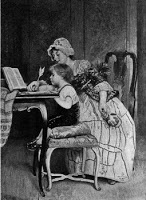
The Writing and Illustrating Kids' Books panel (formerly Getting Started in Children’s Books), is an annual event at the Vancouver Public Library (Vancouver, Canada).
Co-sponsored by the Children's Writers and Illustrators of British Columbia (http://www.cwill.bc.ca/), it features published authors and illustrators who share their stories about getting their start in the industry, speak about what they’ve learned, and answer audience questions on the subject. This is an invaluable event for any aspiring kids’ book author or illustrator.
I've just learned that I have the privilege of being one of the panelists in the coming year: February 29, 2016 from 7-8:30pm. Too early to mark it on your calendar? No worries; I'll post another reminder closer to the time!
Published on December 03, 2015 14:34
November 24, 2015
Pam Withers’ 18th adventure novel – for free!
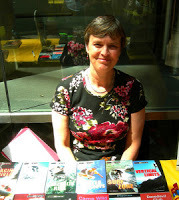
Book me for a presentation at your school or library this spring and get an autographed copy of my forthcoming book, Bungee Jump (Orca Currents, not yet available for order, but soon)!
For those in ONTARIO, here's a brand-new announcement at Authors' Booking Service!
Greater Toronto Area schools: May 9 through 13. Ottawa schools: May 16-17. Full days of four sessions $950 + HST (travel included). Day can be shared by two nearby schools. Grades 4 to 12.
[The rest of the announcement is here:]
http://www.authorsbooking.com/wp/category/news/
Published on November 24, 2015 04:48
November 18, 2015
Escaping the Paris crisis

Our vacation: Birds flying high overhead. Pink sunset glowing through wind-tossed surf waves. A mountain-meadow chorus of sheep bells as the flock grazes its way through rich grass, unaware of the drop-away view to ancient valleys below, or the medley they're creating that sounds like a hundred wind chimes.
We've just returned to Toulouse, France (where we're living temporarily) from three relaxing days along the French and Spanish Atlantic coast and into the Pyrenees. I left my manuscript-in-progress at my desk, stalled on Chapter Thirteen (of twenty). Closing in on the crisis, climax and resolution, but in need of a break.
The night before we left, all hell broke loose in Paris, and the president closed the borders. We figured we'd get turned away from entering Spain, but that we'd give it a try. The closure was lifted hours before we arrived; our rental car moved slowly past machine-gun toting border guards. We entered Spain's Basque country and breathed easy, trying not to let the devastating pictures of the morning newscasts roll through our heads.
We've returned from our vacation refreshed, and I'm back into the flow.
But in Paris? What follows the crisis? Where's the climax and resolution? Where's the badly needed break that allows sun and music to pour in? Who's in charge of this sick, unfolding story? Are tears and mountains of flowers and a moment of silence enough? My heart pours out to the families who've lost loved ones. May they, and France, find some semblance of peace.
Published on November 18, 2015 06:40
November 11, 2015
Setting high standards for kids with learning disabilities
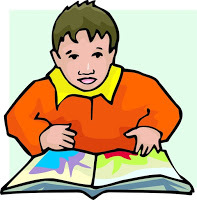 Excerpted from Jump-Starting Boys: Help Your Reluctant Learner Find Success in School and Life, by Pam Withers and Cynthia Gill (Viva Editions). All references (footnotes) contained in the book.
Excerpted from Jump-Starting Boys: Help Your Reluctant Learner Find Success in School and Life, by Pam Withers and Cynthia Gill (Viva Editions). All references (footnotes) contained in the book.http://www.amazon.com/Jump-Starting-Boys-Reluctant-Learner-Success-ebook/dp/B00BAHA0Y8/ref=sr_1_1?s=books&ie=UTF8&qid=1421455869&sr=1-1&keywords=jump+starting+boys
by Samantha Turner
(Reprinted, with permission, from the Smart Kids with LD website at www.SmartKidswithLD.org; copyright by Smart Kids with Learning Disabilities®.)
One thing I’ve noticed over the years is that some parents are reluctant to set tough academic standards for their children with learning disabilities (LD). They fear that setting the bar high will cause their kids to become overwhelmed and filled with anxiety.
In reality, that attitude does more harm than good. Their insecurity comes across as a lack of confidence in their child’s ability to do well in school. Truthfully, many students with LD want to be challenged!
Every day, students with LD are reminded that they learn differently. From the support they receive to the accommodations they’re given, the message is loud and clear: "You don’t learn like everyone else, and because of that you need special treatment."
Parents have an opportunity to counter the message kids get at school. By maintaining high academic standards and holding their children accountable for their schoolwork, they telegraph their belief that their kids can achieve at levels equal to if not better than their peers.
For students with LD, school is often not a safe zone. They may spend a large part of the day feeling out of place and discouraged. Home, on the other hand, is a safe haven. It’s an environment where the pressure is off, and they’re free to explore who they are and gain self-awareness along the way.
Parents should take advantage of that comfort level and push their child academically, helping her to gain confidence and develop the determination to succeed. With consistent encouragement and accountability, students will internalize the belief that they can meet any academic challenge that comes their way.
I learned that lesson early on, and it’s one I’ve never forgotten. When I was in fifth grade, one unit of my history class was dedicated to the Colonial era. My father, a history major, helped me through this class, explaining topics I didn’t understand. But as a student with LD, tests were hard for me! On the first test my grade was thirty-two percent. I was pretty disappointed and nervous about
showing my father, even though I was sure he would tell me it was okay. Instead he responded with the most motivating words I have ever heard: "I don’t ever want to see a grade like that again."
Harsh, yes for a ten-year-old, but empowering! I knew exactly what he meant: He had confidence in me, knowing full well I could do better. On the next exam I studied with what holds smart kids back?
determination and got a 100 percent! I couldn’t have been prouder to show him that grade!”
***
Counter opinion:
“I disagree with recommending pushing one’s child academically,” says Philippa Slater, director of the Learning Disabilities Association of British Columbia, Canada. “Each child, according to their make-up, reacts differently to their LD. Some are far more resilient than others. Some are very fragile. Any pressure has to come with a great deal of homework support and informed sensitivity to how much harder these kids have to study. As LD expert Richard Lavoie says, 'They have to work twice as hard to get half as far.’” (www.ricklavoie.com)
Published on November 11, 2015 11:44
October 29, 2015
Do you read in the bathroom?
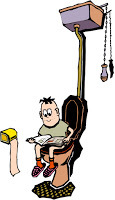 Do you read in the bathroom? Well, 11% of females and 17% of males do. So, stock up the bathroom with reading material; it's whatever keeps us all reading, right? According to the same poll (of Germans by Lufthansa Magazine October 2015, p. 31), 13% of us often read several books simultaneously, 71% of females and 31% of males sometimes cry over a book, and 69% believe in aliens. (Fantasy authors should welcome the latter item.)
Do you read in the bathroom? Well, 11% of females and 17% of males do. So, stock up the bathroom with reading material; it's whatever keeps us all reading, right? According to the same poll (of Germans by Lufthansa Magazine October 2015, p. 31), 13% of us often read several books simultaneously, 71% of females and 31% of males sometimes cry over a book, and 69% believe in aliens. (Fantasy authors should welcome the latter item.)
Published on October 29, 2015 06:36
October 22, 2015
Jay's story: A mother and her ADHD son

This moving story of a mother and her ADHD son involves my sister Cynthia Gill and her son Jay. Cynthia is co-author with me of Jump-Starting Boys, from which this is excerpted.
Cynthia noticed something different about her third son, Jay, long before he reached kindergarten.
During family reading time, he would restlessly color or fiddle with books while his older brothers listened attentively. She knew enough to allow him to be restless because she knew he was still listening, and how else would she get any books into him? But her instincts told her that his inability to sit still or focus was not typical boy stuff.
His first-grade teacher noticed the same issues and worked with Cynthia and her husband to get Jay diagnosed as having ADHD. They noticed Jay’s reading increase and improve immediately after he started taking Ritalin. But it wasn’t enough to restore what Cynthia refers to as his lack of a social antenna and his dwindling self-confidence.
By the time Jay was old enough to ride the bus to school, he was trying out impulsive, attention-getting behavior that worked against making friends, like insulting children five years older and then feeling mystified when they were mean back. And although he was very intelligent, his schoolwork and other activities suffered from his hyperactivity.
“He would get singled out for discipline in almost every activity, even drama and Sunday school,” Cynthia recalls. “He began to see himself as a loser very young. Even though you can medicate them
and help them read well, it doesn’t always help self-esteem unless they get more help. Plus, teachers and authorities don’t always know how to deal with ADHD kids. In retrospect, I think we put
too much stock in Ritalin.”
In grade three, Jay was nearly kicked out of school for ongoing attention-getting behavior like declaring he intended to commit suicide. His parents, unaware of an ADHD child’s needs, reacted like many parents, using punitive methods such as labeling, shaming, and punishments. Jay’s father had less tolerance for his youngest son’s antics than Cynthia, and he and Jay had a difficult relationship for some of Jay’s formative years. However, they have an amicable, even close relationship today—evidence of children’s resilience and what a parent’s perseverance can accomplish.
Here is how Jay, now age twenty-seven, recalls his childhood: “I was above the norm at reading and writing and I was in an advanced math class. But I was bad at doing my schoolwork. I was lazy and have a hard time keeping my mind on something I’m not interested in at that moment. I’m kind of scatterbrained. And getting myself to study for a test took more effort than normal; I was strong-willed in not wanting to do that.”
He recalls hiding his actual reading level from friends. “That’s pretty classic with most boys. The more aggressive guys are often the more unintelligent.”
Cynthia has some regrets about her own handling of Jay: “I was too easy on him. I tried to make up for his problems by being too coddling, yet in so doing, I ended up spoiling him. In my own confusion, I vacillated between being too easy and too harsh.”
Despite the challenges, Jay tried hard to succeed at school until he hit ninth grade, when he all but gave up. His parents enrolled him in an alternative school at that point, which Jay acknowledges helped him for a while, even though he didn’t feel entirely comfortable with his fellow classmates. “The majority of kids in there were kids others were scared of. People started to look at me more like I was a criminal than a dork, and at the time, I kind of liked that. At sixteen, you have to find a group of people you fit in with.”
Before his senior year, Jay dropped out, experimented with drugs, and ran away from home. Even so, he knew he wanted that high school degree. When he entered a General Education Development program to achieve it through taking tests (typically a year’s process), he blew administrators away by attending only two classes, then passing all five tests on the first try.
Today, Jay maintains a close relationship with both of his parents. He’s training to be an actor, and proudly names reading as one of his hobbies. Looking back, he particularly appreciates that his parents had a house well stocked with books, and emphasized the importance of reading with their kids:
“Unlike television and music, books build your own imagination. They help you create rather than just consume and watch. Reading is good, school is important; knowledge is power and the more knowledge you have, the happier you'll be."
Excerpted from Jump-Starting Boys: Help Your Reluctant Learner Find Success in School and Life, by Pam Withers and Cynthia Gill (Viva Editions). All references (footnotes) contained in the book.
http://www.amazon.com/Jump-Starting-Boys-Reluctant-Learner-Success-ebook/dp/B00BAHA0Y8/ref=sr_1_1?s=books&ie=UTF8&qid=1421455869&sr=1-1&keywords=jump+starting+boys
Published on October 22, 2015 09:21
October 16, 2015
Confession: Je suis à Toulouse, France (I am in Toulouse)
 And another confession: Je ne parle pas français. (I don't speak French.) Well, let's just say that phrase pretty much exhausts my French.
And another confession: Je ne parle pas français. (I don't speak French.) Well, let's just say that phrase pretty much exhausts my French.Luckily, my husband is fluent, because we are in Toulouse, France for eight weeks for his work (teaching and research).
And contrary to your suspicion that I'm gallivanting about exploring this charming city, eating almond croissants and poking my nose into the dozens of red brick cathedrals here, I am finishing a novel.
Well, okay, I'm writing in between eating almond croissants and exploring this charming city. I'll be back at my usual desk in Canada (hopefully with my novel finished) in December.
Photo montage credit: "Montage Toulouse 2" by User:En-bateau (compilation) - Own work. Licensed under CC BY-SA 3.0 via Commons - https://commons.wikimedia.org/wiki/Fi...
Published on October 16, 2015 03:03
October 10, 2015
Dad, 1927 - 2015
 My son Jeremy, me and my dad, Richard Miller
My son Jeremy, me and my dad, Richard MillerHe taught me much of what I know in life, especially right from wrong. He role-modeled unselfish and steadfast love, good parenting, fun, optimism, open-mindedness, being adventurous, and caring for others. His memorial service last week was packed with people he'd touched in his 88 years. He was always a bigger than life person. Everyone loved him. He lived a very full life, but even so, his passing puts an enormous hole in my heart.
Published on October 10, 2015 14:16



